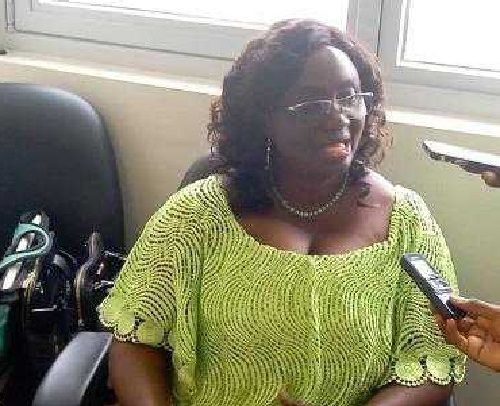Dr. Jemima Dennis-Antwi
The government has been urged to put in measures to empower survivors of sexual violence so as to prevent the criminal act from occurring.
A new report released by the Center for Health and research (CEHDAR) on sexual violence against women and girls in the country identified specialized support services for survivors, and an improved law enforcement response as important tools in fighting sexual violence.
It also emphasised the importance of education and sensitisation on sexual violence as ways of addressing the challenges survivors face including accessing support services, stigmatization, lack of awareness, financial constraints, and fear of not being believed.
CEO and President of CEHDAR, Dr. Jemima Dennis-Antwi in an interview with the media said the study formed part of a three year project called “KASA” initiative, which seeks to scale up interventions to address and reduce sexual violence and its deep rooted drivers across West Africa especially in Ghana, Nigeria and Senegal.
The initiative she indicated is by African women’s development Fund (AWDF) in collaboration with Ford Foundation West Africa and open Society initiative For West Africa (OSIWA).
She said the study objective was to assess the prevalence, impacts, and institutional responses, and recommend evidence-based guidelines for prevention and support.
“The research methods employed a cross-sectional qualitative approach, involving women, girls, sexual violence survivors, people with disabilities, sex workers, and HIV -positive women from 11 regions in Ghana. Key informants included representatives from DOVVSU, Public Health Nurses, Security Service personnel, and Public Health Physicians
Data collection involved an e-interview questionnaire developed in collaboration with WRA-Kenya, an anonymous online web portal, key informant interviews, focus group discussions, and in-depth interviews,” she said.
Dr. Dennis-Antwi indicated that data analysis followed the framework approach, incorporating rapid analysis during daily debriefing sessions and semi-structured debriefing forms.
She said the study recommends the establishment of specialized support services for survivors, such as counseling centres, help lines, and safe shelters.
Also, that the government would ensure easy access, confidentiality, and affordability of these services by providing training for professionals to respond sensitively to survivors’ needs.
“By implementing these policy implications and recommendations, societies can work towards preventing sexual violence, supporting survivors, and creating a safer and more equitable environment for all individuals.
By prioritizing survivor support, education, and collaboration among various sectors, societies can create an environment that upholds the rights and safety of all individuals, ultimately working towards a future free from sexual violence,” she added.
By Jamila Akweley Okertchiri


